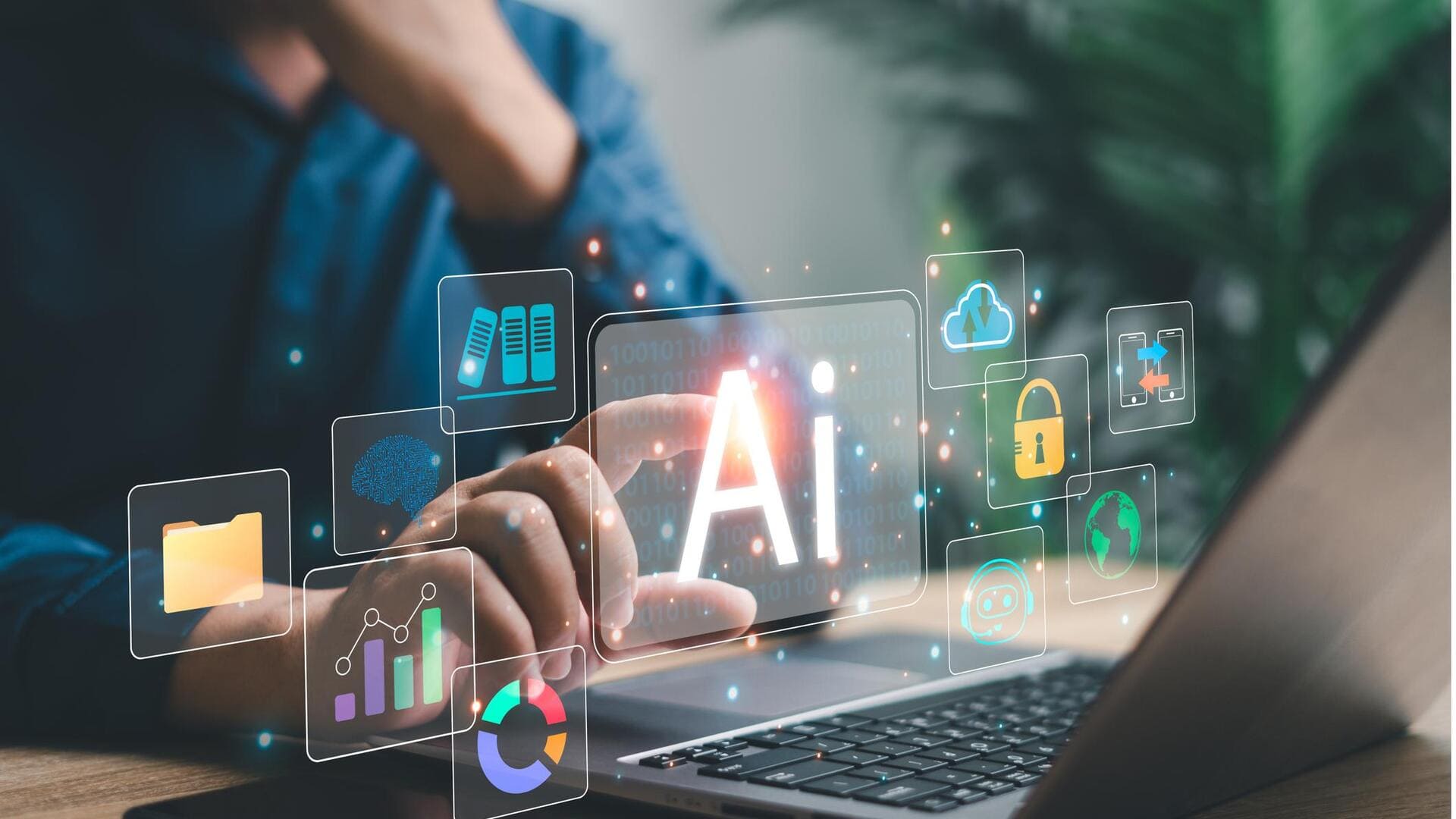
AI use may decrease problem-solving skills, warns Microsoft study
What's the story
A recent study conducted by researchers from Microsoft and Carnegie Mellon University has revealed a concerning correlation between the use of artificial intelligence (AI) in workplaces and a decrease in critical thinking skills.
The research suggests that as employees become more dependent on generative AI for their tasks, they tend to utilize less critical thinking.
This shift could potentially lead to a decline in cognitive abilities that are essential to preserve.
Irony explained
Automation's irony: Routine tasks mechanization
The researchers pointed out an ironic aspect of automation in their study.
They said that by mechanizing routine tasks and leaving exception-handling to humans, people are robbed of regular opportunities to exercise their judgment and strengthen their cognitive muscles.
This can leave them unprepared and cognitively weakened when unexpected situations arise, highlighting a potential downside to increased reliance on AI in the workplace.
Research methodology
Study involved 319 knowledge workers
The study included 319 knowledge workers who submitted 936 examples of generative AI use in their jobs.
Participants were requested to fill out a survey regarding their generative AI usage, including the tools and prompts they employed, their confidence in the AI tools' ability to perform certain tasks, and their confidence in assessing the AI's output.
The tasks mentioned ranged from creating images for presentations to generating recommendations for new resources and strategies.
Confidence correlation
Confidence in AI linked to critical thinking
The study also found that workers' confidence in AI was directly related to their perceived enactment of critical thinking.
When users had less confidence in the AI's output, they used more critical thinking and were more confident about their ability to evaluate and improve the quality of the AI's output.
This finding suggests a shift in cognitive effort from task execution to oversight when using generative AI tools.
Engagement reduction
AI use may reduce critical engagement
The researchers also found that while AI can improve efficiency, it may also decrease critical engagement. This is especially true for routine or lower-stakes tasks where users just depend on AI.
The study raised concerns about long-term dependence on AI and its effect on independent problem-solving skills.
It was also found that users with access to generative AI tools produced a less diverse set of outcomes for the same task than those without such access.
Factors influencing
Time pressure and high-stakes scenarios affect critical thinking
The study highlighted some conditions that affected how much critical thinking workers employed.
For example, those working under time pressure employed less critical thinking, whereas those working in high-stakes situations who were worried about the risk of faulty outputs causing harm employed more.
This highlights the complicated relationship between workplace pressures and the use of AI tools in decision-making.